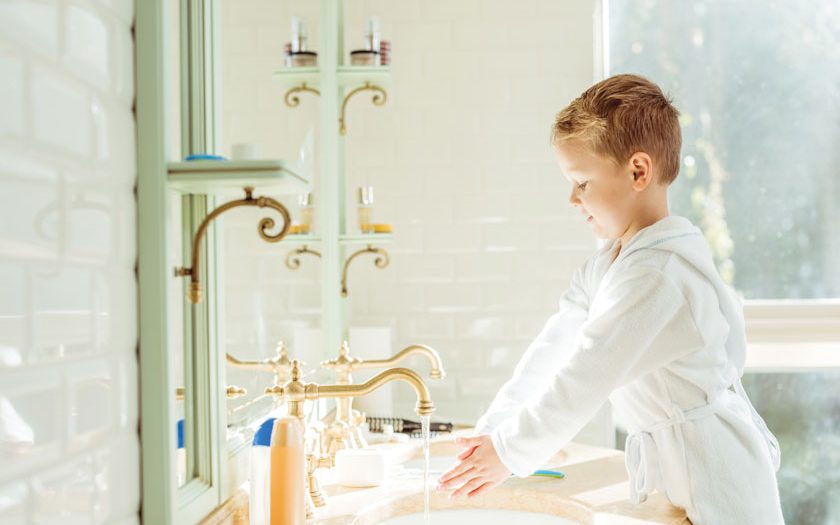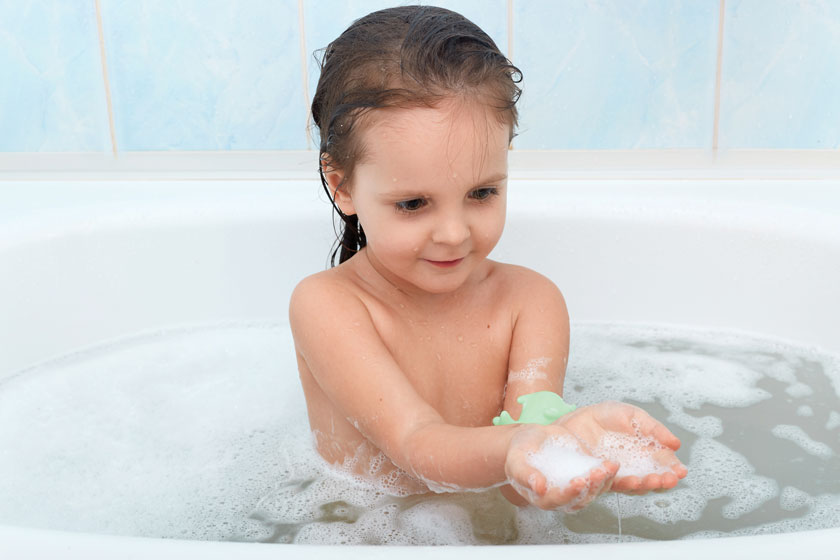Toddlers seem to have the knack of getting dirty all the time. Sooner or later, parents will find the need to teach their toddlers about cleanliness and personal hygiene so that they will be able to ward off germs and bacteria that cause illnesses.
Starting with the basics
When it comes to teaching a toddler anything at all, the best way is to lead by example, so you’ll have to practise what you preach when it comes to keeping your teeth clean, and washing your hands after you’ve used the toilet or played with the family pet.
Of course, your little one cannot be entirely in charge of his personal hygiene but if you do the groundwork now and instill the virtues of cleanliness, you can be sure that you’re paving the path to good hygiene habits!
The ultimate defence against germs – Hand-washing
Our hands touch and transfer germs from one point to another all the time. Teaching a toddler the importance of washing his or her hands, and also the important times to wash their hands, will help keep him clean and healthy.
Little ones are not naturally inclined to keep their hands clean, so you can begin by ensuring they wash their hands after going to the bathroom, coming in from anywhere outdoors and also after playing with pets. Also, make them wash their hands before each meal or snack.
Have your toddler sing his or her favourite nursery rhyme while lathering up during hand-washing. This will help ensure that he’ll wash long enough to remove all dirt, grime and germs. Use kid-friendly soaps or attractive liquid soap dispensers.
Teaching a toddler the importance of washing his or her hands, and also the important times to wash their hands, will go a long way in improving their overall health! These 3 tips may help:
- Clean – before & afterwards: Little ones are not naturally inclined to keep their hands clean, so you can begin by ensuring they wash their hands after going to the bathroom, coming in from anywhere outdoors and also after playing with pets. Also, make them wash their hands before each meal or snack.
- Sing and wash: Have your toddler sing his or her favourite nursery rhyme while lathering up during hand-washing. This will help ensure that the little one will wash long enough to remove all dirt, grime and germs.
- Make it fun! Toddlers are more likely to wash their hands willingly if they like their hand soap. Look for kid-friendly scents and a fun dispenser. If they love to dig in the dirt, buy a gentle nail brush to keep those fingers truly clean and germ-free.
Toilet hygiene tips
When it comes to wiping after using the toilet, it’s always a good idea to do a “once-over” afterwards, even if you’ve already taught your toddler to wipe him or herself with the bathroom tissue. (Teach girls to always wipe from front to back to prevent fecal germs from infecting the vagina or bladder.) Remember too that toddler bowel movements can sometimes get messy. Use disposable wipes instead of toilet tissue on ‘messy’ occasions. to add an extra level of cleanliness…
Note: Toilet training is a lot easier if you use a special potty seat, whether self-contained or one that fits over the top of an adult toilet seat.
Make bath time fun!
Little ones should know the correct names of all their body parts and this includes their private parts too. This is important so they can express themselves effectively if they experience any irritation or pain. By itemizing the parts of their genitals and rectum, you can also help ensure proper washing habits in the bathtub by reminding them of each part to wash. Make sure to teach your child to rinse very thoroughly to prevent rashes.
Many toddlers aren’t too keen on getting their hair washed, probably caused by the possibility of stinging their eyes. This worry can be solved by using a tear-free shampoo that does not irritate or sting the eye. U can also try letting your child play with a bath toy as a distraction while you wash and rinse his hair.
Keep hair neat
Coach toddlers to brush their own hair morning and night to prevent knots. A good detangling shampoo or conditioner will make the process tear-free and more pleasant. Use a soft hair brush that is gentle enough for delicate hair.
Oral care
This is one area of hygiene that you will truly have to lead by example. Teaching a child to brush his or her own teeth regularly will become much easier if the little ones see mummy or daddy do it religiously.



